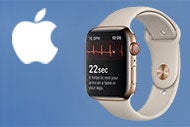
AHA Center for Health Innovation Market Scan


Some of America’s largest companies have made it their business to disrupt health care. And in 2019, these six firms took significant steps to improve efficiency and make high-quality care more accessible. Here are some of their biggest moves.





